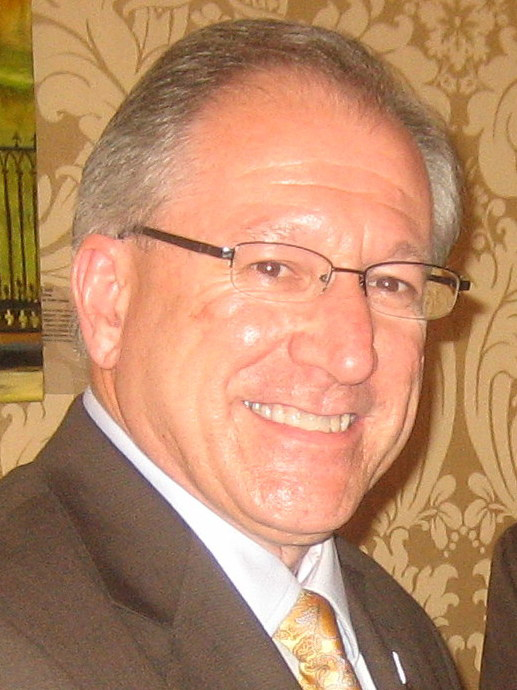
ALEXANDRIA, La. (BP) — There was a period during the mid- to late 1990s when many Christians in America were caught up in the “What Would Jesus Do?” fad. Bracelets, T-shirts and a host of novelties were emblazoned with the recognizable initials “WWJD.”
The trend was fueled by renewed interest in Charles Sheldon’s 1896 book, “In His Steps,” which was subtitled “What Would Jesus Do?” The book tells the story of a community that is transformed when citizens one by one begin to ask themselves “What would Jesus do?” before making any decision.
It seems that some Christians in America might need to revisit the 1990s WWJD fad; either that or they need a refresher course on what Jesus said.
Relevant magazine, a periodical that covers faith, culture and intentional living, reported on its website about two situations when restaurant patrons refused to tip wait-staff because they understood the waiter was homosexual. Notes were left instead of gratuity.
Relevant referenced a note left in a restaurant in Kansas: “‘We cannot in good conscience tip you, for your homosexual lifestyle is an affront to GOD.’ The note went on into some disgusting homosexual slurs, which we won’t print here (one notable quote: ‘[Censored] do not share in the wealth of GOD, and you will not share in ours.’).”
A couple in a New Jersey eatery, according to Relevant, left a note that said: “I’m sorry but I cannot tip because I don’t agree with your lifestyle and how you live your life.” Although the note writer did not indicate he or she was a Christian, it was assumed as much.
In both situations, numerous Christians who learned of the abhorrent actions stepped up to condemn the behavior and offer to compensate the waiters for the withheld tips.
The people who left derogatory notes instead of tips, if they are Christians, certainly need a primer on what Jesus said concerning interaction with fellow human beings.
One of the most famous teachings of Jesus is, “Do unto others as you would have them do unto you.” A more modern way of saying it is, “Treat people the way you want them to treat you.”
Jesus also said His followers were to “Love your neighbor as you love yourself.”
If you really seek to apply Jesus’ words about relating to people, you would treat people with dignity and respect. You would never deride them. You would also extend compassion, encouragement and appreciation, wouldn’t you? And you would pray for them. After all, isn’t that how you would want people to treat you?
In his book, “The 7 Habits of Highly Effective People,” leadership guru Stephen Covey articulated a principle rooted in Jesus’ teachings on human interaction: “Seek first to understand, then to be understood.”
Listening and seeking to empathize with a person, trying to understand them, is how you earn the right to be heard, or understood, according to Covey. Isn’t that how you would want to be treated?
I’m not sure how the restaurant patrons “knew” their wait staff were leading homosexual lives. Perhaps they had a more intimate conservation than I’ve ever had with a waiter. Maybe the wait-persons were wearing buttons indicating their sexual preference. Whatever the case, the patrons’ actions were wrong.
Jesus did not say to treat people the way we would like them to treat us, unless they were practicing homosexuality. He did not say to love our neighbors as we love ourselves, unless they are committing a sin.
Some will argue that telling homosexuals their behavior is a sin is not loving or not treating them the way would you would want to be treated. I disagree.
If I am doing something that is likely to result in harm to myself, I would want someone to point it out. I just wouldn’t want them to poke me in the eye while doing it.
Jesus said we are to be light and salt to the culture where He has placed us. We must remember that when light is directed into the eyes of someone who is the dark, it will seem harsh. And when salt is applied to an open would, it burns.
The eternal truth that people are sinners separated from a holy God is, for many, a harsh truth that stings. However, the good news that Jesus came to be a sacrifice for sin and offers forgiveness truly is a soothing salve.
When we treat people with dignity and respect, offer compassion, encouragement and appreciation, seek to understand before seeking to be understood and pray for people, we might discover more people open to the Gospel message.
There is no way a person seeking to live out the teachings of Jesus would withhold a tip for good service or write a note absent of love if he or she thought a waiter was homosexual. A follower of Christ, attempting to apply His words concerning human interaction, would give a generous tip and then share the hope that is found only in the Gospel. That’s not only WWJD, that’s what Jesus said.
–30–
Kelly Boggs is a weekly columnist for Baptist Press, director of the Louisiana Baptist Convention’s office of public affairs, and editor of the Baptist Message (www.baptistmessage.com), newsjournal of the Louisiana Baptist Convention. Get Baptist Press headlines and breaking news on Twitter (@BaptistPress), Facebook (Facebook.com/BaptistPress) and in your email (baptistpress.com/SubscribeBP.asp).















